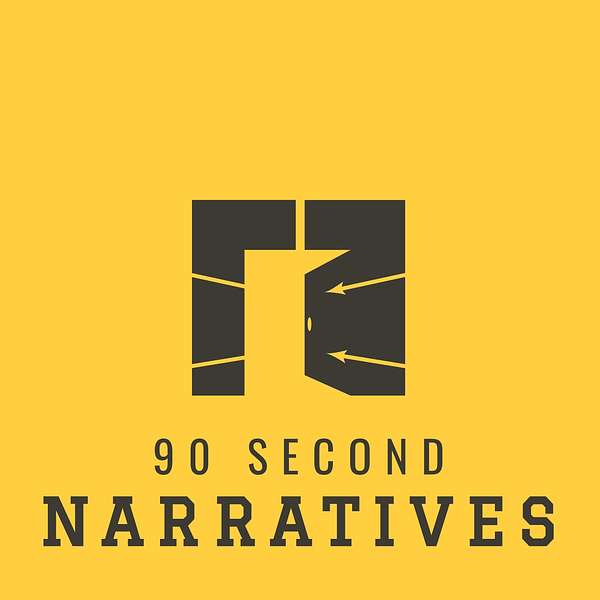
90 Second Narratives
90 Second Narratives
Underdogs in the American Imagination
Use Left/Right to seek, Home/End to jump to start or end. Hold shift to jump forward or backward.
“Sports are an important ingredient in building community. Whether you’re a participant or a spectator, sports allow you to take part in a visible, public activity, fostering social connection and a sense of shared identity…”
So begins today’s story from Dr. Bruce Berglund.
For further reading:
The Fastest Game in the World: Hockey and the Globalization of Sports by Bruce Berglund (University of California Press, 2020).
Episode transcript:
https://skymichaeljohnston.com/90secnarratives/
90 Second Narratives
Season 7: “Community”
Episode 2: “Underdogs in the American Imagination”
Sky Michael Johnston:
Hello and welcome to 90 Second Narratives. Season 7 with the theme, Community, continues today. I’m Sky Michael Johnston here to introduce our storyteller, Dr. Bruce Berglund, and his story, “Underdogs in the American Imagination.”
Bruce Berglund:
Sports are an important ingredient in building community. Whether you’re a participant or a spectator, sports allow you to take part in a visible, public activity, fostering social connection and a sense of shared identity. For instance, take for example the Miracle on Ice. On February 22nd, 1980, the US Olympic hockey team pulled off a stunning upset win against the Soviet Union at the Winter Olympics. Why does this hockey game still matter to so many people today?
More than forty years after the Lake Placid Olympics, and thirty years since the Soviet Union ceased to exist, the Miracle on Ice still has a strong hold on many Americans. Why is that? What does this game mean for Americans, in terms of their sense of community and identity?
Think of this: What is the quintessential American sports movie? You might think of Rocky, or Remember the Titans, or even Miracle, the 2004 Disney movie about the Olympic team. American audiences are drawn to stories like these, stories of underdogs, usually people of working-class background, who rise to the top through sacrifice and hard-work.
The 1980 US Olympic hockey team were underdogs. They were real amateurs –most players had come right from college. The American players also came from working-class backgrounds. Among their parents were a truck driver, an electrician, a carpenter, an auto plant worker. In contrast, the Soviets were the best hockey team in the world. They called themselves amateur, but in fact the Soviets were paid to train and play hockey year-round. They had won the gold medal in the previous four Olympics. The year before the Lake Placid games, they had trounced a team of NHL All-Stars, 6–0. The US Olympic team trained for one purpose—to beat the Soviets. “We were a real-life ‘Rocky’ story,” said coach Herb Brooks about his team’s win. “We reflected the work ethic.” The hockey team’s win at Lake Placid still holds meaning today because they were America’s last true underdogs. They were the underdogs that Americans still imagine themselves to be.
Sky Michael Johnston:
Dr. Berglund insightfully uses the sport of hockey as a window into the histories of numerous communities in his new book, The Fastest Game in the World: Hockey and the Globalization of Sports. It was published in 2020 by the University of California Press and is available for a great price in paperback and eBook.
Thank you for joining me today. Please subscribe to 90 Second Narratives, wherever you are listening from, for your weekly “little story with BIG historical significance.”